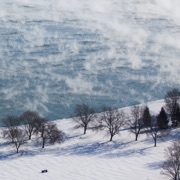AccuWeather meteorologists are available 24/7 to provide further insights and updates on evolving weather conditions. Please contact pr@accuweather.com during regular business hours, or support@accuweather.com or call AccuWeather’s Media Hotline at (814)-235-8710 at any time to arrange interviews with AccuWeather experts or to request the most updated graphics for print or broadcast.
Threat of flooding and tornadoes from Beryl shifts to Midwest, Interior Northeast & New England
July 9, 2024
> AccuWeather’s preliminary estimate of the total damage and economic loss from Hurricane Beryl in the United States is $28-32 billion
> Families, contractors, and utility crews face increased risk of heat-related
illnesses while working in Texas heat without power and air conditioning
> AccuWeather Climate Expert says record warm waters in the Gulf of Mexico
helped Beryl intensify in its final hours before landfall in Texas
> No imminent tropical threats on the horizon in the Atlantic basin
AccuWeather Global Weather Center – July 9, 2024
AccuWeather expert meteorologists refer to certain former tropical storms and hurricanes as tropical rainstorms to raise the awareness that disruptions, damage, and dangers may continue from tropical systems long after the National Hurricane Center drops the name designation.
AccuWeather Lead Hurricane Expert Alex DaSilva said Beryl could produce severe thunderstorms and tornadoes Tuesday in northeast Arkansas, western Tennessee, southeast Missouri, southern Illinois, southern Indiana, western Kentucky, and southwest Ohio.
“We’ll be monitoring the Ohio Valley closely for the risk of tornadoes and severe weather today,” said DaSilva. “Tropical systems create a lot more spin in the atmosphere than your typical storm. The risk for tornadoes is naturally higher.”
AccuWeather Chief Meteorologist Jon Porter said the risk of heavy rainfall, flooding, and tornadoes will shift to parts of the Great Lakes, interior Northeast, and eventually parts of New England through Thursday.
“The threat of heavy rain and flooding is serious. We don’t want people in the path of Beryl to let their guard down. Over the next few days, there could be dangerous flash flooding as copious moisture streams northward from Beryl,” said Porter. “At times, these storms are essentially hitting the brakes and dumping heavy rain over the same areas for hours and hours; that will result in a significant flash flooding risk. AccuWeather meteorologists have increased concerns about flooding risks in parts of upstate New York, portions of Vermont, New Hampshire, and even Maine on Thursday. That tropical moisture from Beryl will encounter a frontal boundary in that area that can squeeze out extra rainfall.”
AccuWeather reminds people do not drive into flooded roads; turn around, don’t drown.
Heat and humidity impacting recovery efforts in Texas
AccuWeather expert meteorologists say families, contractors, and utility crews working in the heat without access to air conditioning, fans, or shaded areas to take breaks face an increased risk of heat exhaustion or heat stroke this week.
“Houston took a direct hit from the northern eyewall of Beryl. We saw powerful wind gusts above 80 mph in the city. The heat and humidity is going to be tough for people without power. All of the moisture from the rainfall and flooding is evaporating and sending AccuWeather RealFeel® temperatures soaring above 100 degrees,” said DaSilva. “It’s going to be hot for families and contractors repairing damaged homes, and for the utility crews working in the sun, trying to restore power for millions of people.”
With the likelihood of extended power outages that could last for several days in the hardest hit communities, Porter says generator safety should be a top priority.
“So many times, people are able to survive the storm’s impact, but then tragically, we often see excess deaths and serious injuries that are caused by people who are desperate for power and turn to portable generators. It’s crucial that people use extra caution and follow instructions, ensuring that generators are far away from doors and windows of homes and businesses to prevent carbon monoxide poisoning,” said Porter. “There are a lot of people in the nation’s fourth largest city that are still without power. For the second time in just the last few months, we’re seeing significant wind damage in Houston. A derecho in May left millions of Texans without power for days. Beryl once again shows us the vulnerability of cities and grid infrastructure in coastal areas.”
No imminent tropical threats on the horizon
With the focus on clean-up and recovery efforts in the wake of Beryl, AccuWeather expert meteorologists say there are no indications of tropical trouble in the immediate future.
“All signs show that the tropics will be quiet for the next week or two. The middle of July is typically quiet across the Atlantic because there is usually a lot of disruptive wind shear and dry air. Also it is usually too late in the season to get fronts that make it all the way to the Gulf Coast to help initiate development,” said DaSilva. “There looks like there will be quite a bit of wind shear and dry air across the Atlantic basin over the next two weeks. This should help to keep a lid on any major tropical development.”
Historic hurricane linked to impacts from climate change
Beryl will go down in the history books as the earliest Category 5 hurricane to develop in the Atlantic basin on record.
AccuWeather Climate Expert and Senior Meteorologist Brett Anderson said record warm waters in parts of the Atlantic Ocean, the Caribbean, and the Gulf of Mexico helped Beryl explode in intensity with devastating impacts in the Windward Islands, the Yucatan Peninsula of Mexico, and the Texas coast.
“Record high ocean heat content, which is primarily being caused by climate change, clearly played a role in the rapid intensification of Beryl across the tropical Atlantic, eastern Caribbean, and the Gulf of Mexico before it encountered wind shear, drier air, and the added friction from land masses,” explained Anderson. “The warmer the water, the greater amount of available energy for tropical storms and hurricanes.”
Anderson said water temperatures well above the historical average near the United States coastline in the Gulf of Mexico helped Beryl re-intensify in its final hours before landfall.
“As AccuWeather correctly predicted, Beryl passed over the Yucatan Peninsula and lost a significant amount of wind energy. Despite moving back over the warm waters of the southern Gulf of Mexico, Beryl continued to struggle as it continued to ingest significant amounts of dry air. As Beryl moved closer to the Texas coast, it began to regain some strength, as the flow of dry air into the storm was slowly being cut off,” said Anderson. “As Beryl got within 100 miles of the Southeast Texas coast, it passed over a pocket of very warm sea surface water that was at least 86 degrees. In general, hurricanes need surface waters to be at least 80 degrees to strengthen. This increase in temperature provided just enough additional energy to help Beryl strengthen to a Category 1 hurricane before it made landfall. Fortunately, Beryl was still moving along at a steady clip. If Beryl had slowed down, that would have allowed it to spend more time over the very warm waters and potentially strengthen to a Category 2 or even a Category 3 hurricane.”
AccuWeather expert meteorologists are forecasting an ‘explosive’ hurricane season with 20-25 named storms and 4-6 direct impacts on the United States.
Porter said it’s important for people to stay vigilant and be prepared for the threat of rapidly intensifying tropical storms and hurricanes later this year.
“You don’t want to wait too long to restock your hurricane supplies, and most importantly, don’t let your guard down at all this hurricane season,” warned Porter. “AccuWeather is forecasting a very busy and impactful hurricane season, and we’re just getting started.”
AccuWeather Forecast Graphics
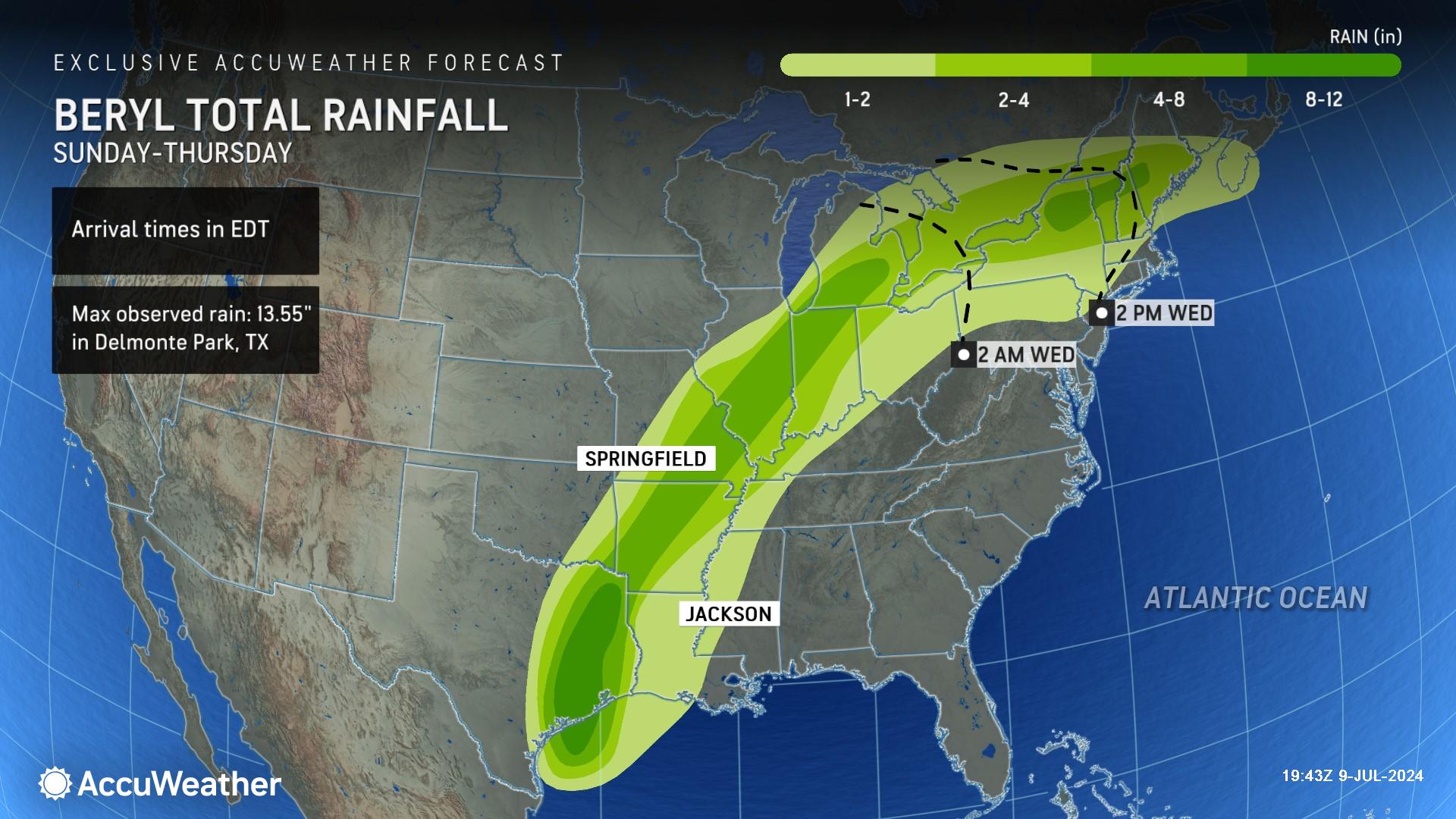
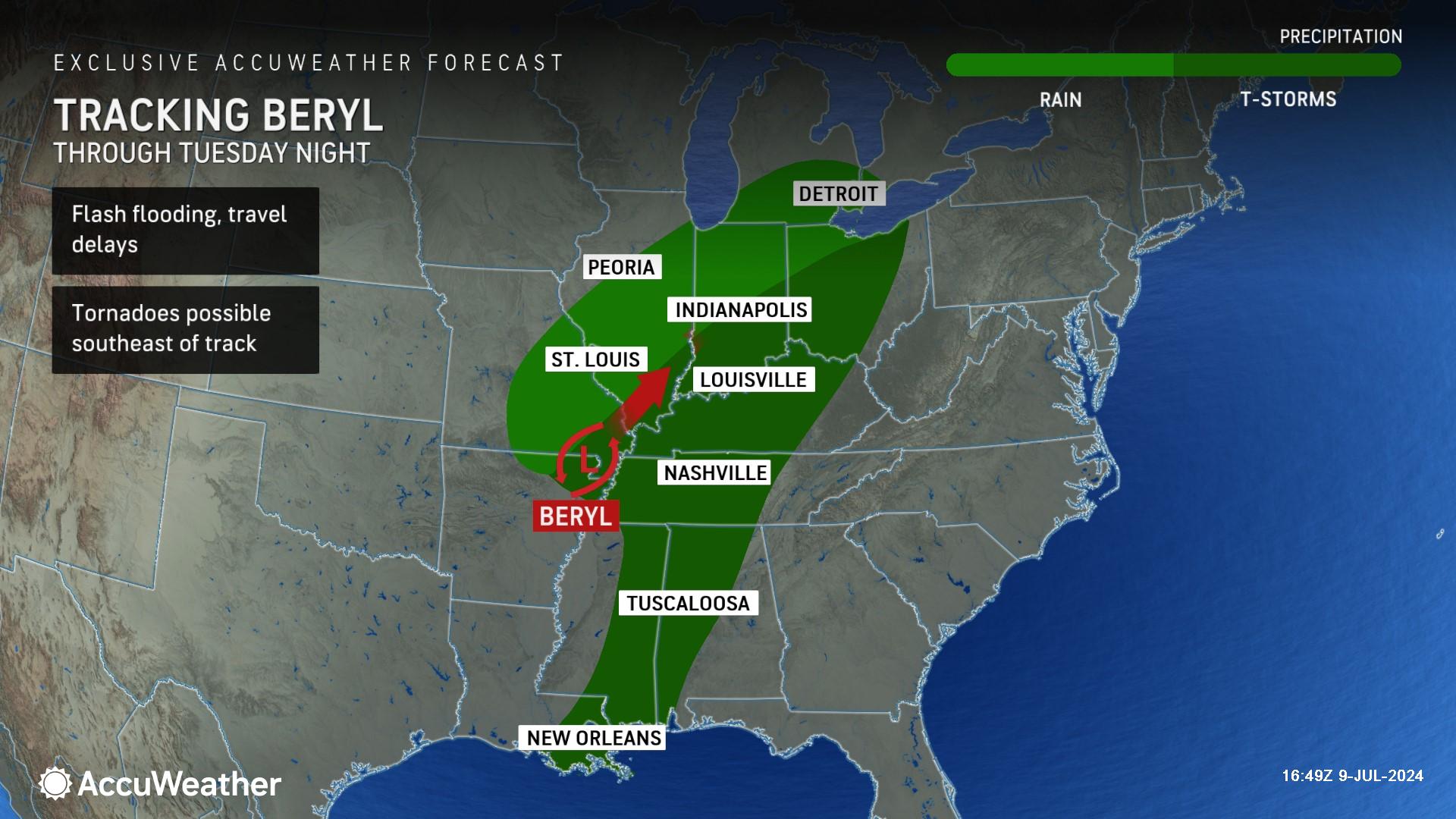
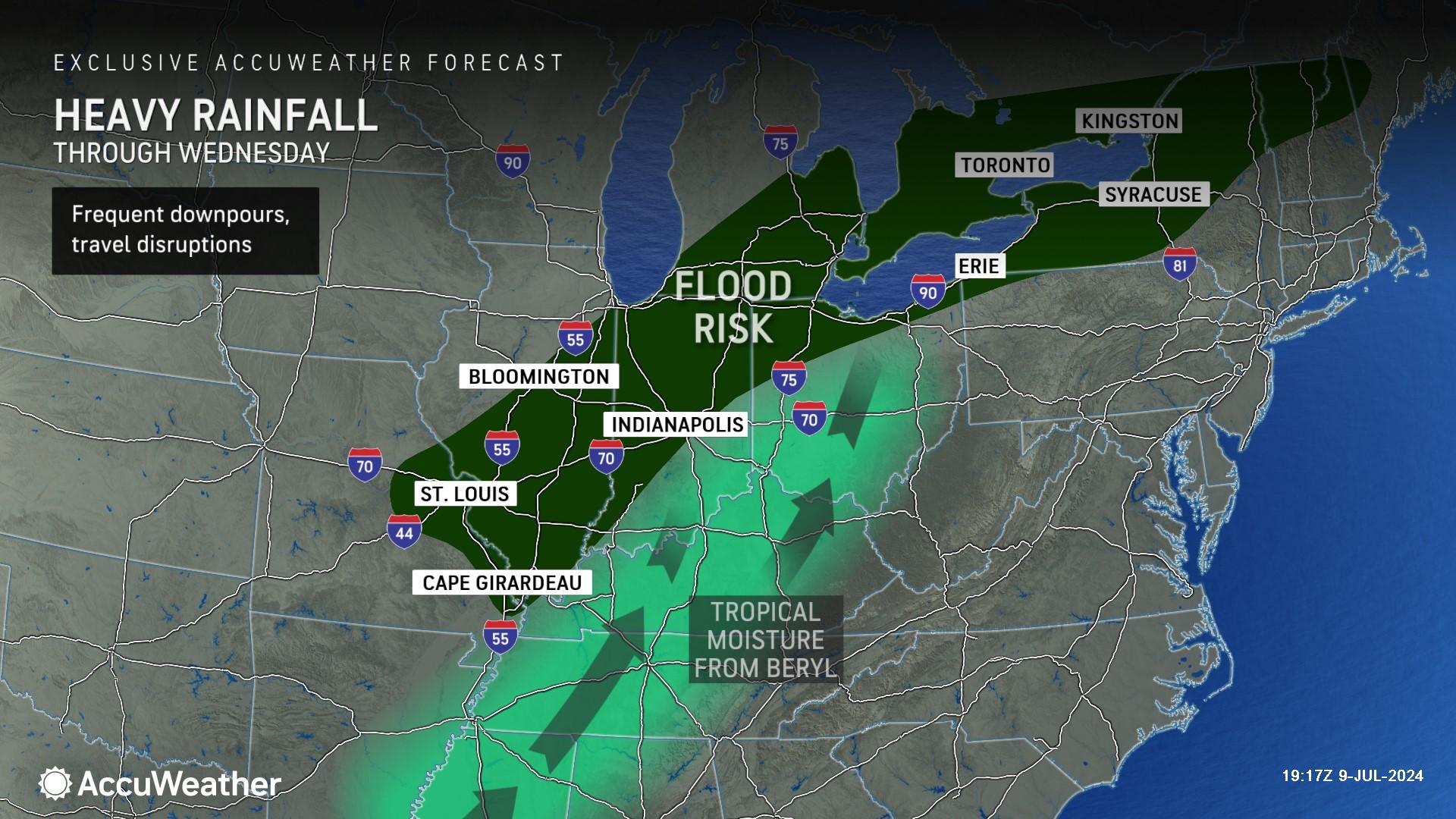
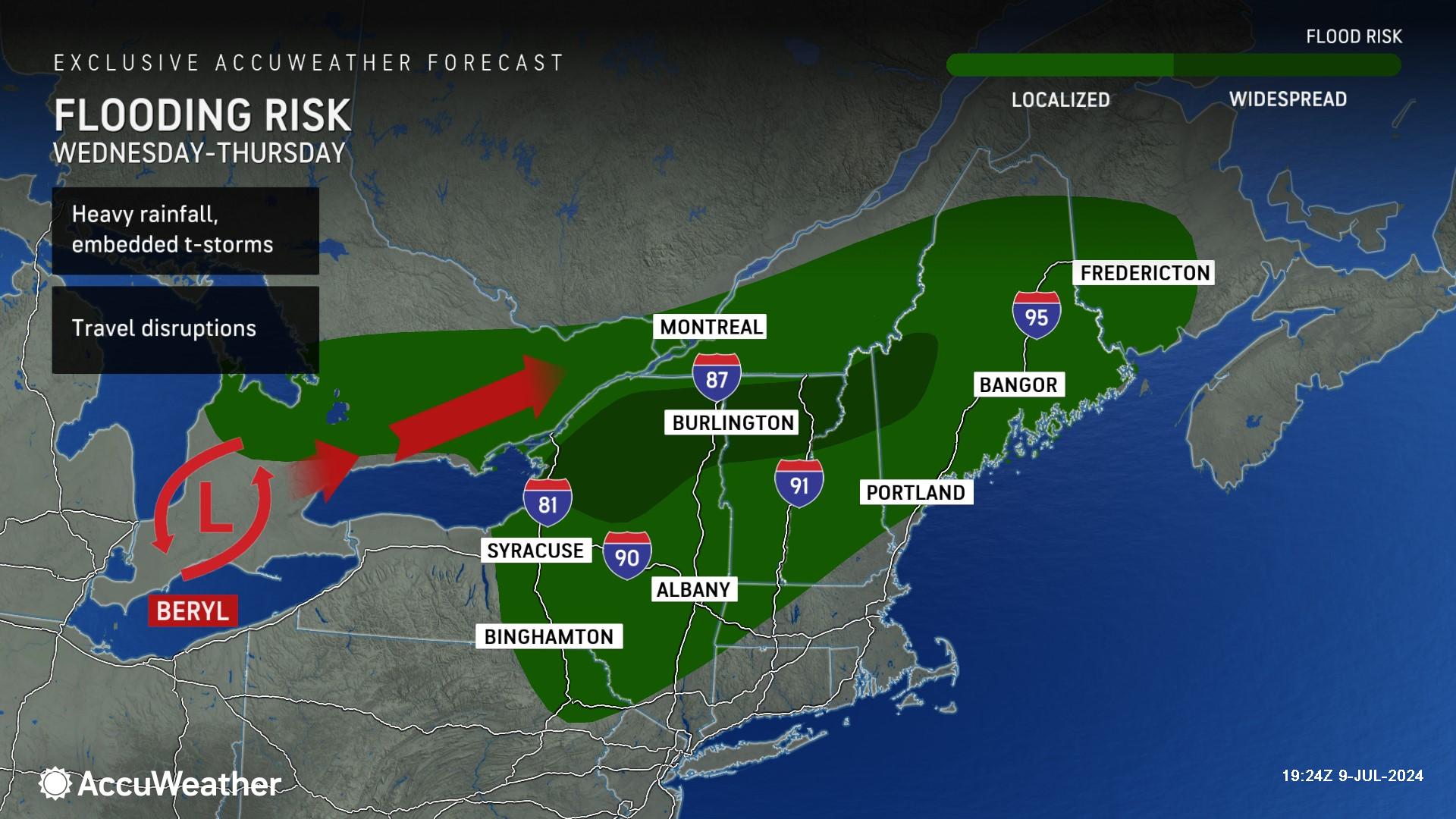
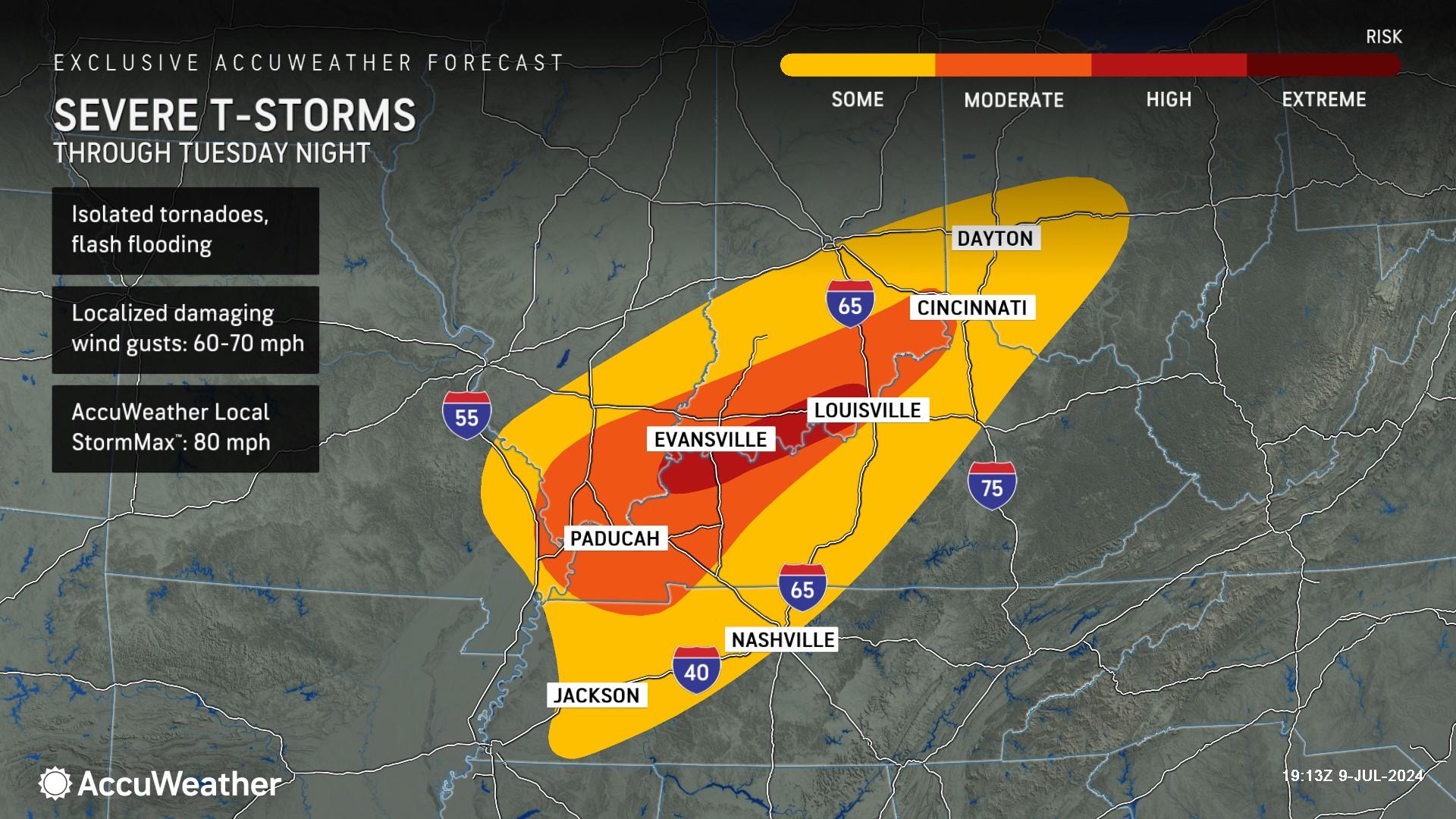
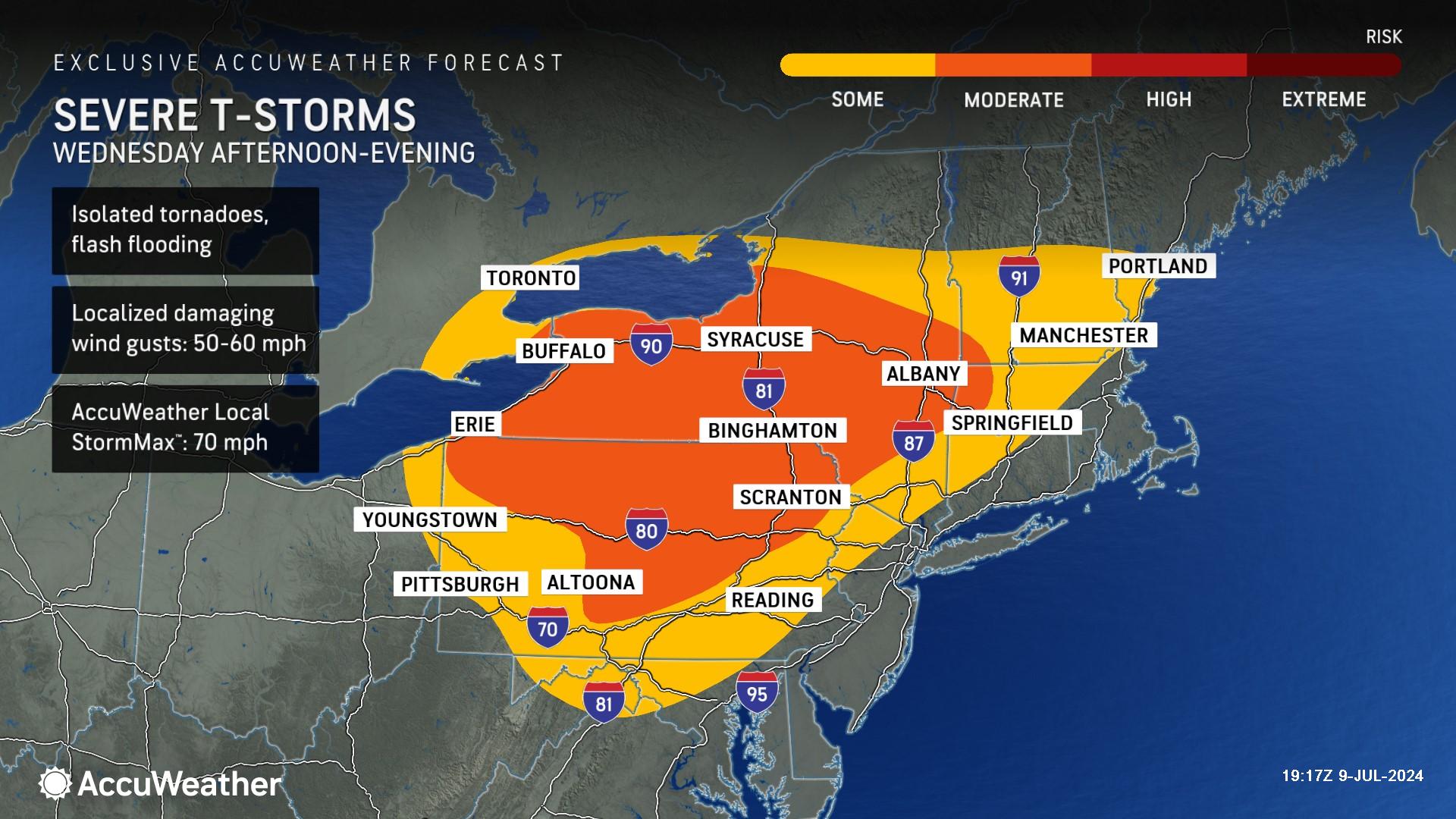
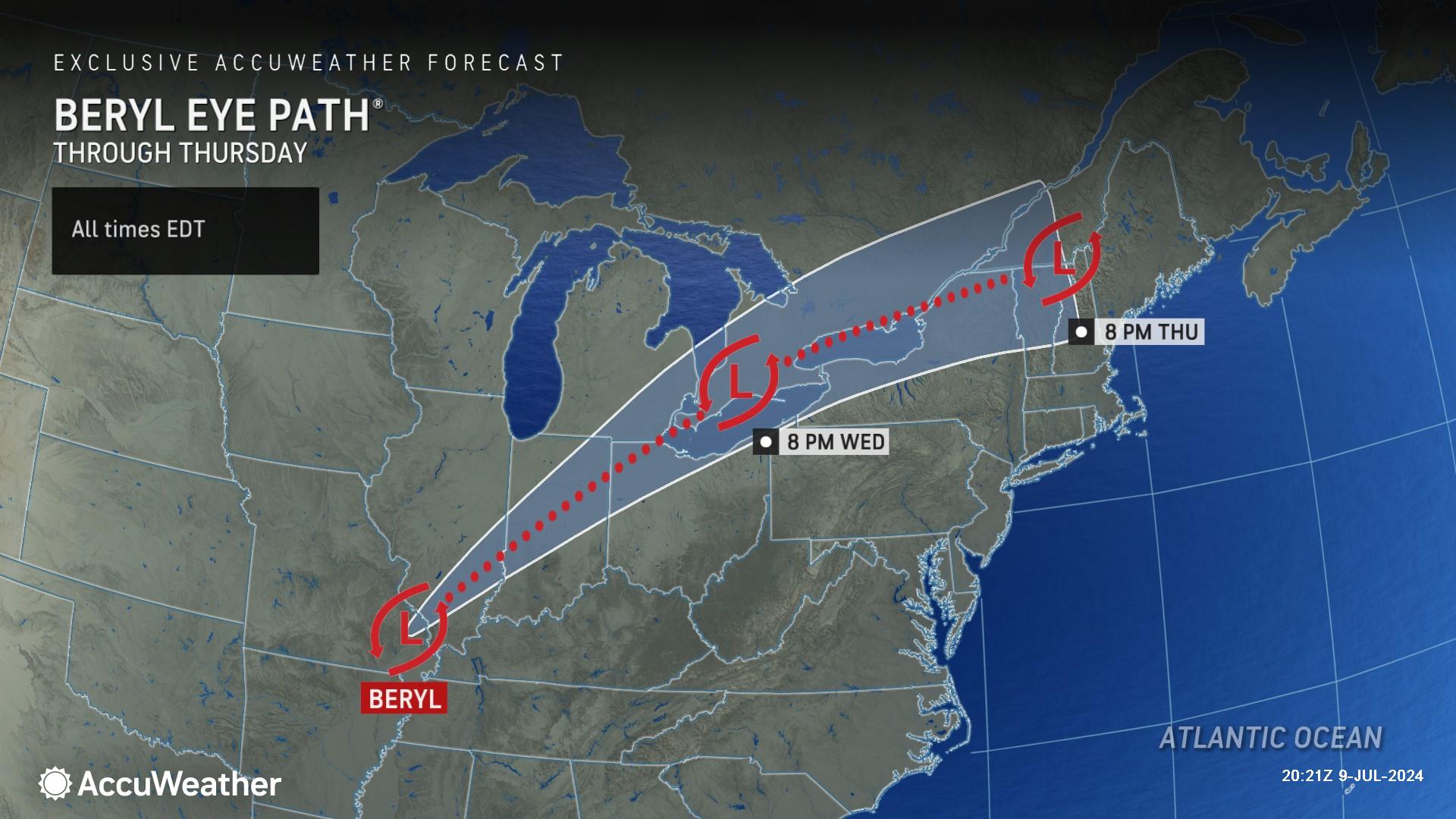
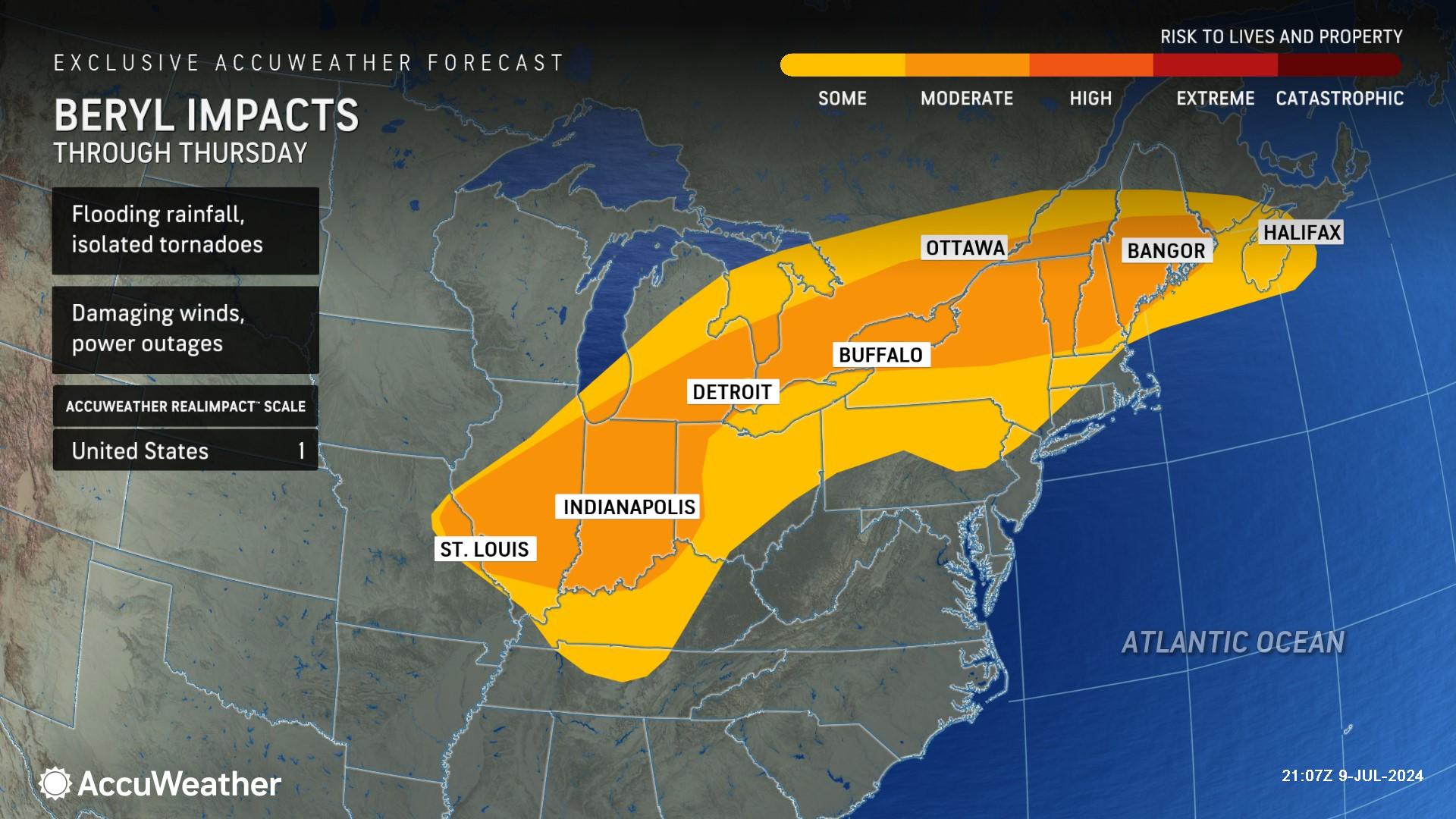
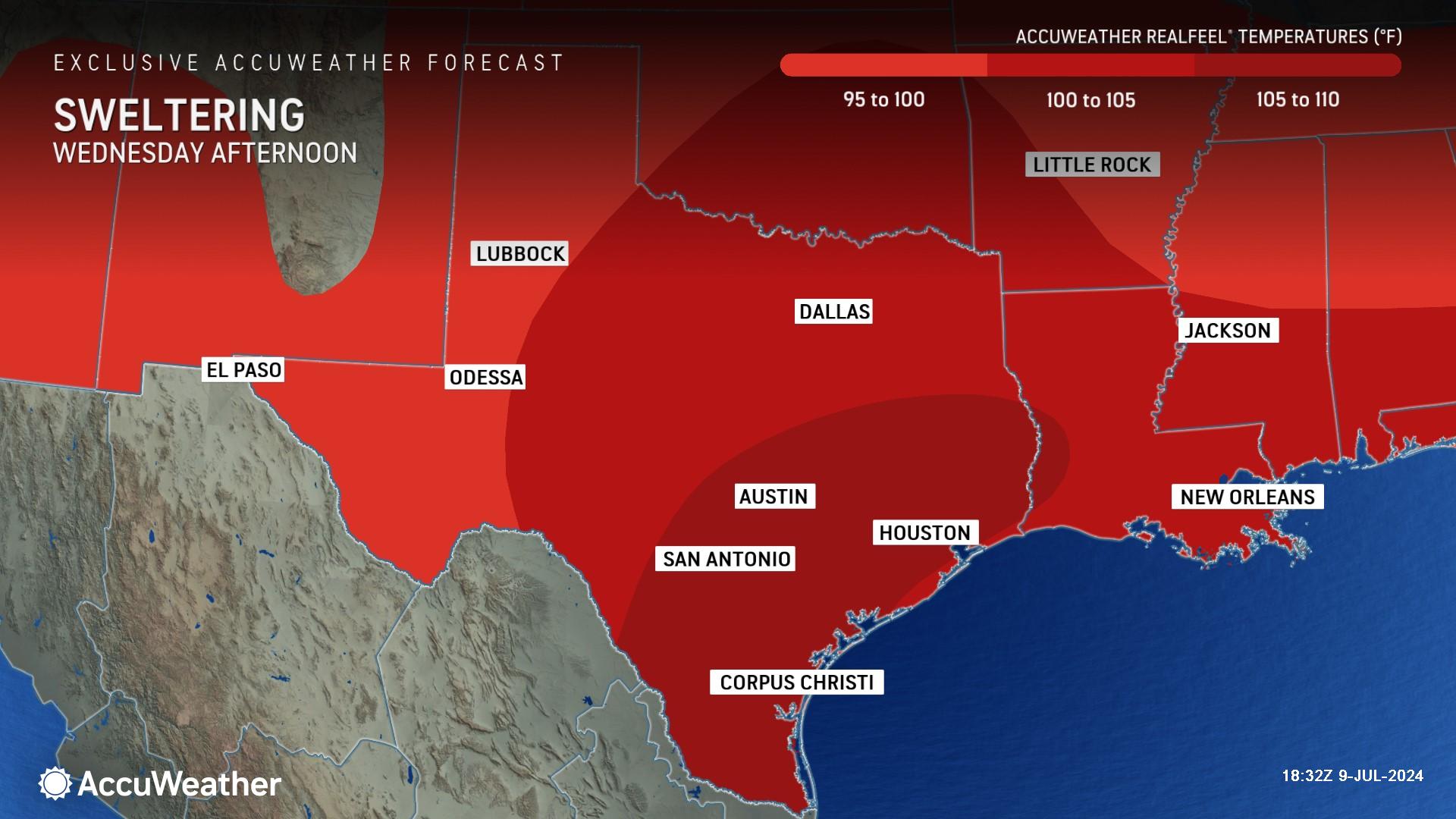
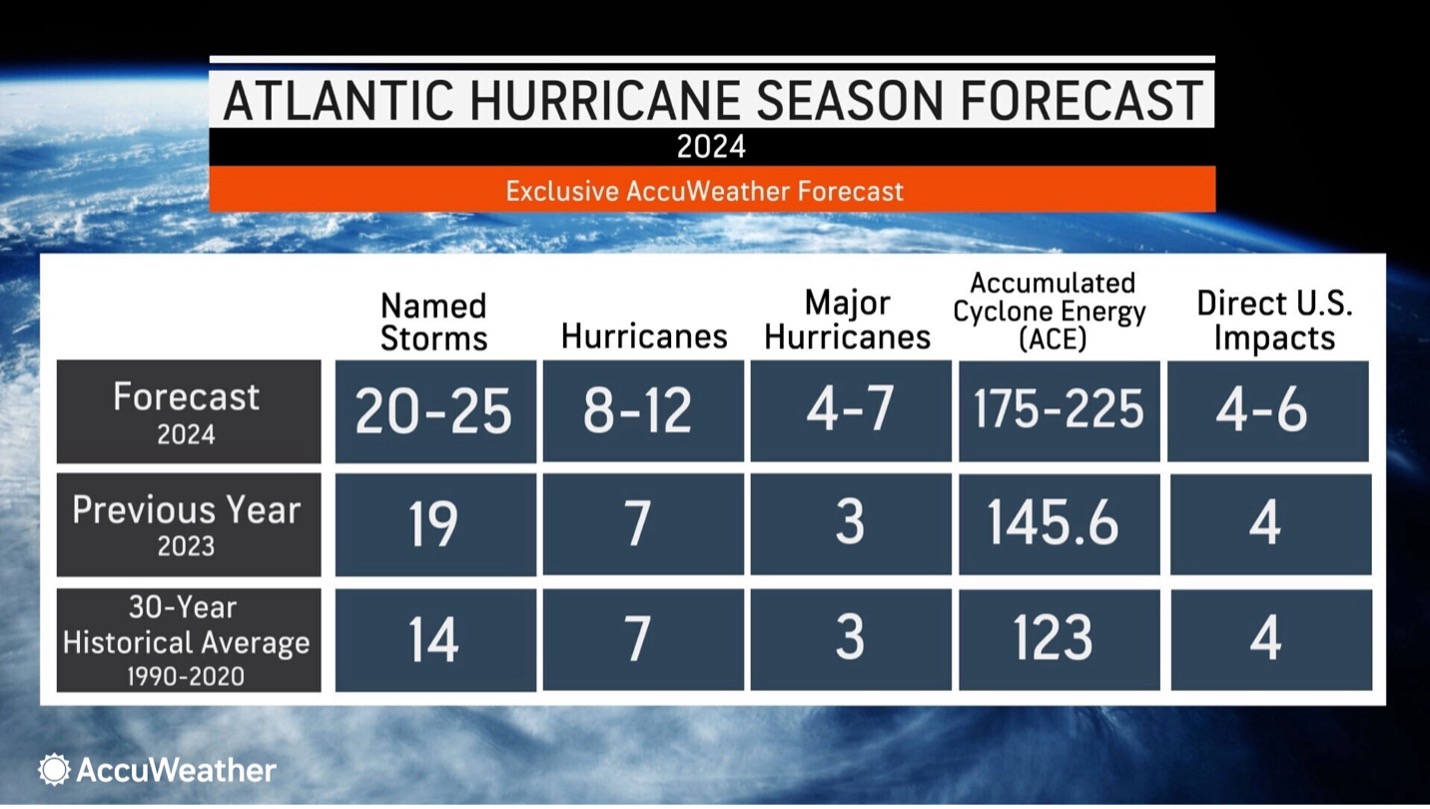
Additional AccuWeather Resources:
Beryl's fury turns deadly, leaves millions in the dark across Texas
Beryl, tropical downpours to raise Midwest and Northeast flood threat
AccuWeather’s Preliminary Estimate of the Total Damage and Economic Loss from Hurricane Beryl in the United States is $28-32 Billion
How to use a generator safely after a hurricane strikes
What are the warning signs of heat exhaustion and heat stroke?
AccuWeather Forecasts Explosive 2024 Hurricane Season
Rapidly Intensifying Hurricanes Near Coastline Pose Major Threat To US This Season



